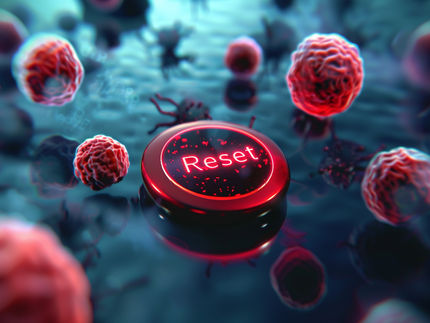Human Genome Science announces positive results of phase 2 clinical trial of Lymphostat-B in systemic lupus
Advertisement
Human Genome Sciences, Inc. announced that the 76-week results of a Phase 2 clinical trial demonstrated that LymphoStat-B(TM) (belimumab) reduced disease activity in patients with serologically active systemic lupus erythematosus (SLE), exhibited durable biological activity, and appeared safe and well tolerated. In the LymphoStat-B treatment groups, the percentage of serologically active SLE patients who achieved the combined response rate selected as the primary efficacy endpoint for Phase 3 trials of LymphoStat-B(TM) increased from 46% at Week 52 to 56% at Week 76, with no increase in infections or infectious events observed over time.
LymphoStat-B is a human monoclonal antibody that specifically recognizes and inhibits the biological activity of B-lymphocyte stimulator, or BLyS(TM). BLyS is a naturally occurring protein discovered by HGS that is required for the development of B-lymphocyte cells into mature plasma B cells. Plasma B cells produce antibodies, the body's first line of defense against infection. In lupus, rheumatoid arthritis, and certain other autoimmune diseases, elevated levels of BLyS are believed to contribute to the production of autoantibodies - antibodies that attack and destroy the body's own healthy tissues. The presence of autoantibodies appears to correlate with disease severity. Preclinical and clinical studies demonstrated that B-cell antagonists can reduce autoantibody levels and help control autoimmune disease activity.
LymphoStat-B is a Human Genome Sciences drug, created through a collaboration with Cambridge Antibody Technology. It has received a Fast Track Product designation from the FDA for its potential use in treating SLE and has been selected for participation in the FDA's Continuous Marketing Application Pilot 2 Program.
Other news from the department research and development
Most read news
More news from our other portals
See the theme worlds for related content
Topic world Antibodies
Antibodies are specialized molecules of our immune system that can specifically recognize and neutralize pathogens or foreign substances. Antibody research in biotech and pharma has recognized this natural defense potential and is working intensively to make it therapeutically useful. From monoclonal antibodies used against cancer or autoimmune diseases to antibody-drug conjugates that specifically transport drugs to disease cells - the possibilities are enormous

Topic world Antibodies
Antibodies are specialized molecules of our immune system that can specifically recognize and neutralize pathogens or foreign substances. Antibody research in biotech and pharma has recognized this natural defense potential and is working intensively to make it therapeutically useful. From monoclonal antibodies used against cancer or autoimmune diseases to antibody-drug conjugates that specifically transport drugs to disease cells - the possibilities are enormous



























































